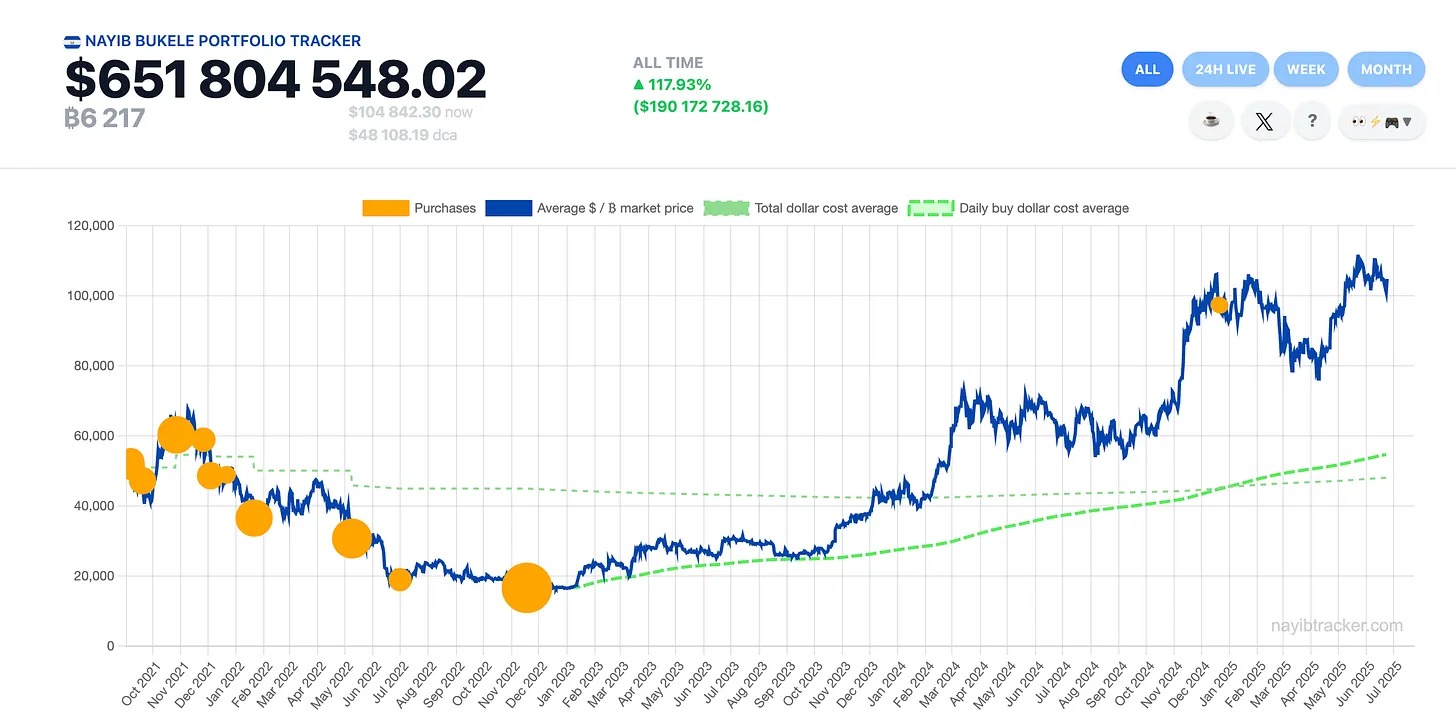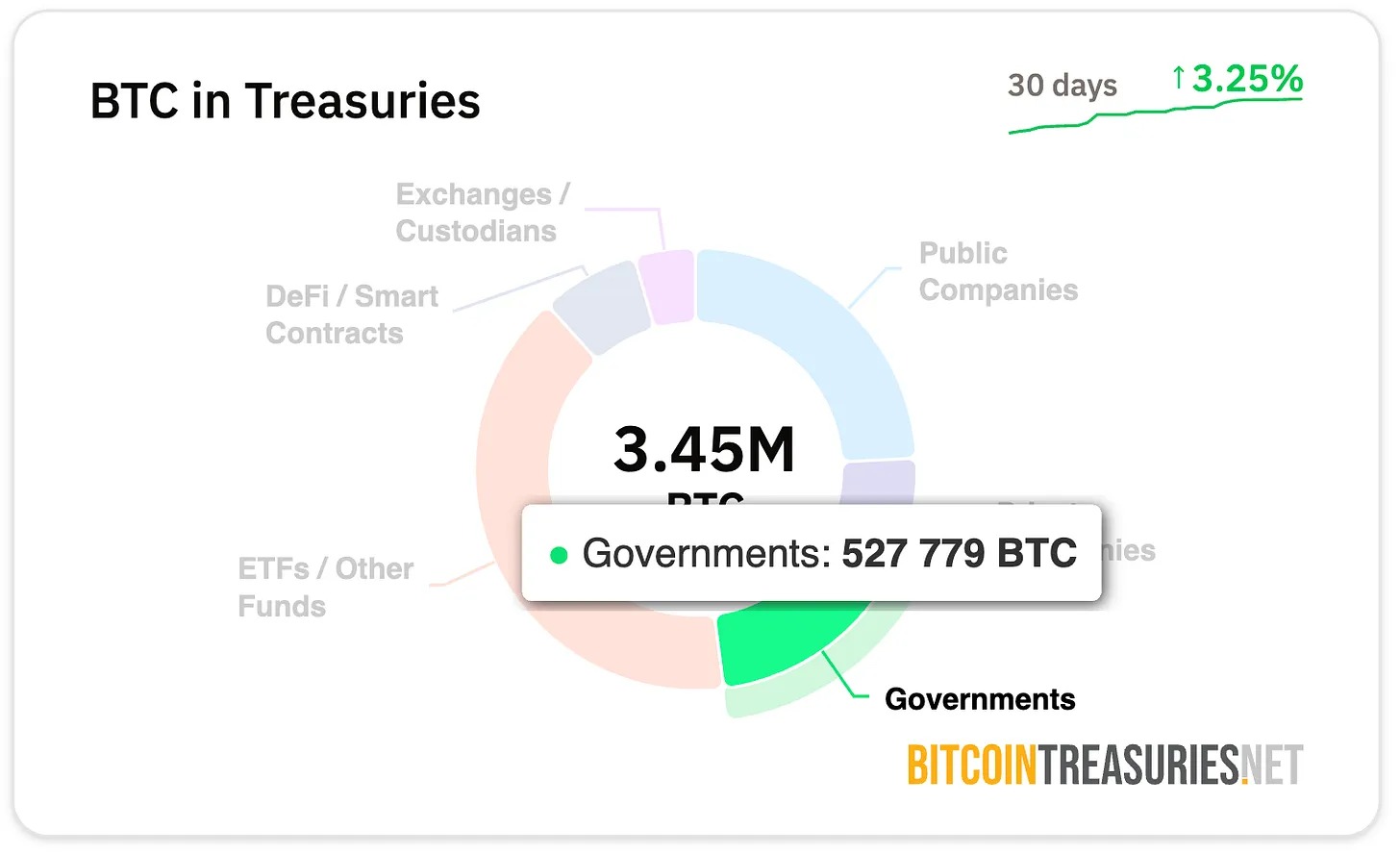Are Struggling Countries Betting Everything on Bitcoin?
Written by: Thejaswini M A
Translated by: Block unicorn
Introduction
On May 28, the Minister of Blockchain and Cryptocurrency of Pakistan announced at the Bitcoin 2025 conference in Las Vegas that they have established a strategic Bitcoin reserve.
This country, which claimed a few years ago that "cryptocurrency will never be legal," has suddenly made a 180-degree turn, promising never to sell their Bitcoin holdings. Minister Bilal Bin Saqib stated, "The Bitcoin wallet of this country is not for speculation or hype; we will hold these Bitcoins and will never sell."
Not only Pakistan, but Ukraine also hopes to incorporate cryptocurrency into its national reserves.
Brazil is also considering allocating 5% of its foreign exchange reserves to Bitcoin.
We are witnessing the rise of a strategic Bitcoin economy, with countries actively adopting Bitcoin as a modern treasury tool.
So, is this financial innovation driven by opportunity or necessity?
This trend has become hard to ignore since the Trump administration expressed support for a U.S. strategic Bitcoin reserve in March 2025.
Ukraine is still at war and submitted Bill No. 13356 to parliament on June 11, allowing its central bank to include cryptocurrency in national reserves.
Brazil followed suit with the "RESBit" proposal, which could allocate up to 5% of its foreign exchange reserves to Bitcoin. Even the mayor of Panama City hinted mysteriously at "Bitcoin reserves" after meeting with Bitcoin advocates from El Salvador in May.
Then there is El Salvador, a prime example of this movement. Despite signing a $1.4 billion loan agreement with the International Monetary Fund (IMF) in December 2024, which explicitly discourages further accumulation of Bitcoin, they continue to quietly purchase Bitcoin daily. Since the agreement was reached, they have added 240 BTC, with President Bukele's government somehow maintaining "technical compliance" through the IMF's so-called "flexible interpretation."
They are seeking creative ways to continue purchasing Bitcoin while maintaining the flow of IMF funds.

All-In Strategy
These countries are following what I call an "all-in strategy"—strategically betting on emerging financial technologies that show potential when traditional economic policies stagnate.
Pakistan has allocated 2,000 megawatts of electricity for Bitcoin mining and AI data centers, turning its power grid into a cryptocurrency casino. The minister announced, "We welcome all miners to come to Pakistan," as if foreign miners using electricity could solve economic problems.
The reasoning sounds compelling: Bitcoin's limited supply can hedge against inflation, and decentralization provides independence from traditional finance, with recent performance resembling a magical economic bullet.
When Pakistan talks about "100 million unbanked people" and how cryptocurrency helps them "break economic barriers," it represents a genuine policy response to financial inclusion that traditional banking has yet to address.
These countries are making Bitcoin the core of their economic strategy.
Economic Innovation Index
Why are struggling economies turning to Bitcoin? The answer lies in their fundamental currency challenges. Traditional currencies in developing countries face three major existential threats that Bitcoin theoretically can address:
Between 2020 and 2024, U.S. inflation rose by 20%, while Bitcoin increased by over 1000%. This mathematical calculation is appealing for countries with higher inflation rates.
Looking at the leading countries, you will find a pattern. They are nations facing severe structural challenges.
Reality Check in Pakistan: The Pakistani economy is in a fragile stabilization phase after barely avoiding a crisis. GDP growth for FY 2025 is only projected at 2.6-2.8%, far below the government's initial target of 3.6%. The country faces enormous structural issues, with over 100 million citizens unbanked, widespread financial exclusion, and an economy that contracted before a recent mild recovery. Per capita income is only $1,824.
Ukraine's War Economy: Despite achieving management stability through significant foreign aid, the Ukrainian economy remains severely impacted. The country's GDP shrank by nearly 30% in 2022, with growth forecasts for 2025 only at 2-3%. Ongoing conflict has destroyed 70% of energy infrastructure, damaged 13% of housing stock, displaced millions of workers, and caused severe labor shortages. Poverty affects 9 million Ukrainians, with reconstruction needs estimated at $524 billion over the next decade. Lawmakers are exploring Bitcoin reserves as an asset unaffected by the traditional financial system to help "strengthen macroeconomic stability" in an economy entirely reliant on foreign support.
El Salvador's Gamble: The economy largely depends on remittances, which account for over 20% of GDP, making it vulnerable to external shocks. The average growth rate is only 2-3%, with growth forecasts for 2025 slowing to 2.2-2.5%. The country faces ongoing challenges, including a fiscal deficit, a high public debt peak of 88.9% of GDP, and low productivity.
Bhutan's Bitcoin Lifeline: Bhutan's economy faces devastating "brain drain," with over 10% of tech workers leaving in 2022 and youth unemployment reaching 19%, while the tourism sector struggles to recover post-COVID. What is this landlocked kingdom's response? To mine Bitcoin using excess hydropower resources and double civil servant salaries with the proceeds. According to Arkham Intelligence, Bhutan's Bitcoin holdings are valued at over $600 million, accounting for 30% of the national GDP. Bhutan has essentially shifted from measuring development levels by "Gross National Happiness" to betting its economic future on cryptocurrency mining.
Brazil's Hedge Policy: Brazil's economic situation is more complex, with growth slowing but not yet in crisis. After a strong growth of 3.4% in 2024, GDP growth for 2025 is expected to slow significantly to 2.1-2.3% due to tightening monetary policy and reduced fiscal stimulus. The central bank's benchmark interest rate remains high at 14.75% to combat inflation still above the 3% target, while increasing social spending and structural issues pose ongoing fiscal risks. Brazil is considering allocating 5% of its foreign exchange reserves to Bitcoin through PL 4501/2023, reflecting concerns about reliance on fiat currency and a desire for portfolio diversification.
Do you call it desperation? I see it this way: these countries recognize the potential of Bitcoin as a strategic asset class and are incorporating it as an innovative component of monetary policy.
When faced with long-term inflation, currency devaluation, and limited access to traditional safe-haven assets, Bitcoin begins to appear less like speculation and more like a pragmatic hedging tool.
Academic research supports this view. As James Butterfill's analysis shows, Bitcoin's annualized inflation rate has dropped to just 0.83% after the 2024 halving, and it continues to decrease with each halving, while the average annual inflation rate of global fiat currencies is 2-5%. For countries watching their purchasing power decline year after year, this mathematical certainty is very appealing.
What about the corporate side of the story? We see that 240 publicly traded companies have incorporated Bitcoin into their balance sheets, up from just 124 a few weeks ago. This is institutional recognition of the changing monetary landscape.

Developing Countries Are Already Aware
While the announcements of Bitcoin reserves in Pakistan and Ukraine may seem sudden, they actually follow strategies that have been quietly validated in developing countries for years. The roots of these motivations lie in the economic realities these countries face daily.
When the purchasing power of the local currency continues to decline, Bitcoin's fixed supply is no longer just a technical feature but a lifeline. Countries that have long experienced inflation have seen their citizens naturally gravitate towards Bitcoin as a means of storing value, as the local currency fails to hold its value over time. Because the traditional monetary system cannot provide the stability they need.
Populations in Nigeria, Kenya, Vietnam, and other developing countries have embraced Bitcoin. When governments can print local currency without limits, an asset with a total cap of 21 million units begins to look like sound monetary policy.
The traditional banking systems in developing countries often exclude large populations due to documentation requirements, minimum balance thresholds, or lack of infrastructure. Bitcoin does not require your credit score or a minimum balance. You only need an internet connection and a mobile phone.
Those who have been shut out of traditional financial services find they can participate in global commerce, receive remittances, and build savings through cryptocurrency platforms. Bitcoin provides financial services to those underserved by traditional banking.
Many developing countries implement strict capital controls that limit citizens' ability to access foreign currency or transfer funds internationally. Bitcoin operates outside these restrictions, providing a pathway to global financial markets that the traditional system cannot offer.
El Salvador's Remittance Case: Suppose El Salvador receives about $10 billion in remittances annually, with traditional services averaging a 10% fee, meaning $1 billion flows to intermediaries like Western Union and MoneyGram instead of reaching families in El Salvador.
If using Bitcoin and stablecoins reduces fees to 2-3%, the same remittance would only cost $200 million to $300 million—potentially saving $700 million to $800 million annually, funds that could go directly into the local economy. For a country with a GDP of about $32 billion, this equates to over 2% of total economic output being retained rather than lost to transaction costs.
Bitcoin-based transfers can significantly reduce these costs, meaning more funds can truly reach families in need.
The trend we are now seeing in corporate balance sheets is, in fact, institutional recognition of a phenomenon that individual users in developing countries discovered years ago: when traditional financial options are limited or expensive, Bitcoin serves as a practical financial infrastructure rather than "speculation."
Our Perspective
Risks Worth Noting.
Of course, this strategy is not without risks, and we should be mindful of potential issues that may arise.
As James Butterfill points out, Bitcoin's annualized return of 165% since 2009 makes it quite attractive. But this performance has occurred during an unprecedented period of monetary expansion and risk appetite. What happens if this environment changes?
If Bitcoin's correlation with traditional markets increases during a significant economic downturn as it has in the past, these reserves may not provide the diversification benefits that countries expect. An asset that should hedge against systemic risk could instead amplify it.
There are also factors of concentration risk. If every struggling economy follows the same strategy, we may see a situation where the countries that need stability the most are also the most vulnerable to cryptocurrency volatility.
However, the early adopters of Bitcoin reserves are positioning themselves at the forefront of monetary transformation, which could define the next decade. If this trend continues and Bitcoin proves its resilience in economic stress tests, early adopters like El Salvador, Pakistan, and Ukraine will establish strategic advantages in digital asset holdings and blockchain infrastructure.
The regulatory environment seems increasingly supportive of this trend, with the U.S. committed to its strategic Bitcoin reserves and other major economies exploring similar frameworks. Widespread institutional adoption will not create systemic risk; rather, it will validate Bitcoin's status as a legitimate reserve asset and create network effects that make these early strategic decisions appear prescient.
免责声明:本文章仅代表作者个人观点,不代表本平台的立场和观点。本文章仅供信息分享,不构成对任何人的任何投资建议。用户与作者之间的任何争议,与本平台无关。如网页中刊载的文章或图片涉及侵权,请提供相关的权利证明和身份证明发送邮件到support@aicoin.com,本平台相关工作人员将会进行核查。




